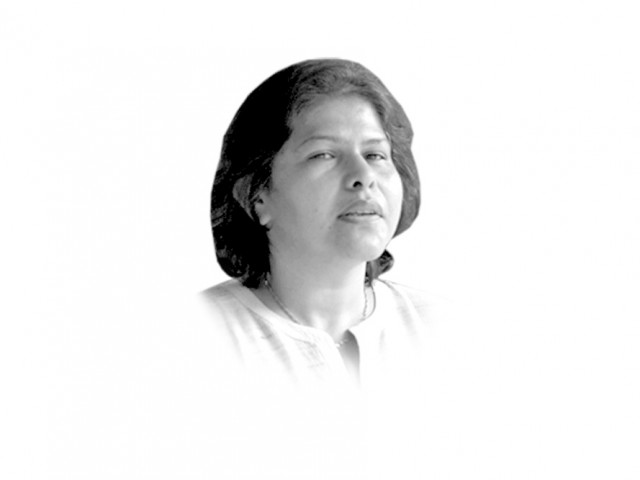Burma talk
In social media language, the Rohingya massacre issue is a battle between liberal-fascists and the fundos.

Burma talk
Scanning through some of the material on the issue in social media, it doesn’t take long to realise that the entire debate is not really about Burma but about the social divide in Pakistan. There seems to be a contest between those trying to frame this as a clash of civilisations problem versus others, who believe the emphasis is on an Islamists conspiracy. In social media language, this is a battle between liberal-fascists and the fundos.
Starting with the latter, the argument is: why the emphasis on the Burmese question when Pakistan has its own minority rights problems to deal with. The neo-nationalist-Islamists in the country are less eager to denounce the killings of Ahmadis, Shiites, Christians and Hindus. Such a proposition is unjustified since there is no bar on the number of injustices that an individual or a country can decry. The persecution of the Burmese Muslims is as serious an offence as any other. Hence, the argument made by both sides is lame — violence in Burma cannot be protested until internal issues are sorted out or that domestic acts of injustice cannot be protested until people have the moral authority of having protested the Burmese issue first. However, flagging an issue and protesting injustice must not be based on an obvious manipulation of facts as it raises pertinent questions about the actual intent. Indubitably, the Rohingya Muslims of Myanmar are in trouble but this does not justify a campaign in Pakistan based on doctored photographs. Some of the photos showing Buddhist monks overseeing hundreds of dead bodies are actually fake. This does not reduce the intensity of the problem or negate the fact that the mixture of religion with state politics anywhere in the world makes a lethal potion used by the powerful to manipulate and persecute.
However, it is not certain if those flagging the issue are really seriously concerned about the atrocities against the Rohingya Muslims, which represent one of the four groups of Muslims in Myanmar and have been in trouble since the 1940s. The real problem between this religious-ethnic group and the military-political leadership in Myanmar is not based on religion but national contestation as the Rohingyas have never really accepted being part of Myanmar and vice versa. In fact, in 1947, Mohammad Ali Jinnah had discouraged them from harbouring any secessionist ideas and instead advised them to sort out matters with their state.
Although successive governments in Pakistan claim to have stuck with Jinnah’s advice, Burma accused Islamabad of fuelling insurgency during the 1950s. Despite trying to improve relations by signing of a friendship treaty in 1952, which probably led to the arrest in 1954 by Pakistan of the head of the Mujahid Movement of Burma, relations didn’t improve substantially.
The neo-Islamists today like to imagine that Islamabad must threaten Rangoon with direct intervention in support of the Rohingyas like Field Marshal Ayub Khan did during the 1960s. However, Ayub’s stance had nothing to do with religion but about Burmese refugees crossing into East Pakistan. After 1971, Islamabad lost most of its interest in the fate of Burmese Muslims and Burma. Nor did the civil society ever protest the fate of these people. The neo-Islamists, whom I would define as people with a desire to use religion for geopolitical ambitions, have tried to use the religious identity brush for gaining legitimacy in Pakistan and Burma rather than seriously addressing the problems of Rohingya persecution. In Pakistan, it gets them applause without people realising that stopping persecution was never the intent because if that was the case, then the neo-Islamists would have also condemned the alleged victimisation of the Rohingya refugees by Bangladesh in 2010. In Burma, such a campaign helps build inroads for groups like the Lashkar-e-Taiba that have reportedly developed limited links with some religious militants.
However, it is important to maintain that the Rohingya issue is essentially a non-religious crisis of serious magnitude. Sacrificing these people further at the altar of a clash of civilisations will certainly be criminal.
(To be continued)
Published in The Express Tribune, July 27th, 2012.















COMMENTS
Comments are moderated and generally will be posted if they are on-topic and not abusive.
For more information, please see our Comments FAQ